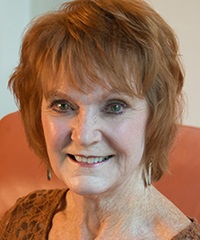CC16 Topical Panel 01 - Neuroscience - Helen Fisher, PhD, Pat Love, EdD, and Stan Tatkin, PsyD
- Average Rating:
- Not yet rated
- Topic Areas:
- Neuroscience | Topical Panels
- Categories:
- Couples Conference | Couples Conference 2016 | Pioneers in Couples and Family Therapy
- Faculty:
- Stan Tatkin, PsyD, MFT | Pat Love, EdD | Helen E. Fisher, PhD
- Course Levels:
- Master Degree or Higher in Health-Related Field
- Duration:
- 01:01:00
- Format:
- Audio and Video
- Original Program Date:
- May 13, 2016
- License:
- Never Expires.
Description
Description: This panel bridges neuroscience and relational theory, examining how personality, hormones, and brain systems shape intimacy. Fisher presents neurobiological personality types; Tatkin underscores the value of scheduling sex to sustain closeness; and Love explores hormonal influences on gendered relationship challenges. The group reflects on dopamine’s role in love and considers how modern courtship trends may support lasting bonds.
Educational Objectives:
- To describe the use of brief therapy techniques in specific clinical situations.
*Sessions may be edited for content and to preserve confidentiality*
Credits
Handouts
| Ericksonian Learning Snapshot (247.9 KB) | 2 Pages | Available after Purchase |
Faculty

Stan Tatkin, PsyD, MFT Related Seminars and Products
Stan Tatkin, PsyD, MFT, is a clinician, researcher, teacher, and developer of A Psychobiological Approach to Couple Therapy (PACT®). He has a clinical practice in Calabasas, CA, where he has specialized for the last 15 years in working with couples and individuals who wish to be in relationships. He and his wife, Tracey Boldemann-Tatkin, developed the PACT Institute for the purpose of training other psychotherapists to use this method in their clinical practice.

Pat Love, EdD Related Seminars and Products
Pat Love, Ed.D, is known for her warmth, humor, and practical, research-based wisdom. Her blog posts, YouTube clips, books, trainings, workshops, and online courses have made her a popular go-to relationship consultant. Her work has been featured on TV, in cyberspace, and popular magazines, but she’s also a distinguished professor, licensed marriage and family therapist, and long-standing clinical member and approved supervisor in American Association for Marriage and Family Therapy.

Helen E. Fisher, PhD Related Seminars and Products
Helen E. Fisher, PhD, is a biological anthropologist and a Research Professor in the Department of Anthropology at Rutgers University. She has written five books on the evolution and future of human sexuality, monogamy, adultery and divorce, gender differences in the brain, the chemistry of romantic love, and most recently, human personality types and why we fall in love with one person rather than another.


